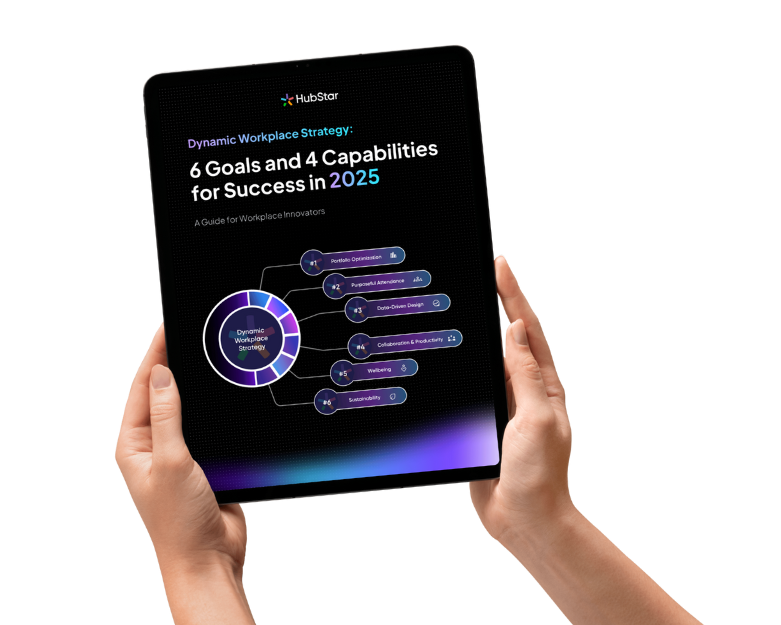Discover what top workplace innovators are focusing on for hybrid success
Guide for Workplace Innovators
Drive Change with a Dynamic Workplace Strategy: 6 Goals & 4 Capabilities for Hybrid Success
Published on 25.02.25Hybrid working creates complexity. Leaders need smarter strategies to stay ahead. Download our guide to discover how a dynamic workplace strategy can optimize space, boost collaboration, and create offices people want to use.
Contributors
Jane Young
Discover what top workplace innovators are focusing on for hybrid success
What’s inside?
Everything workplace leaders need to stay ahead. Learn how to optimize space, boost collaboration, and create offices people actually want to use!
- 6 key goals shaping workplace strategy in 2025
- 4 essential capabilities for hybrid success
- Actionable steps to optimize space and boost collaboration

Rising Hybrid Complexity
Workplace leaders today face unprecedented complexity as they navigate variable hybrid attendance, rising employee expectations and the need to make data-driven decisions.
Hybrid work, as a strategy, holds great promise to benefit individuals, organizations and society. Yet few have established the foundations needed to continuously adapt workplace experiences to evolving needs.
A dynamic workplace strategy solves this by providing a framework for optimizing attendance, analyzing behavior and driving change at the speed of business - turning complexity into value.
Jane Young
Writer & Speaker, Future of Work
Why Dynamic Workplace Strategy
With a dynamic workplace strategy, workplace leaders can have it all:
- People outcomes like collaboration, team connection, productivity, wellbeing and creativity
- Business outcomes like cost savings, carbon reduction, growth, innovation
Download the guide to learn how

Contributions
Jane Young
Future of Work
Share this post